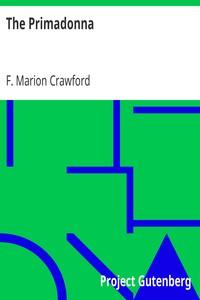|
|
Read this ebook for free! No credit card needed, absolutely nothing to pay.Words: 82680 in 23 pages
This is an ebook sharing website. You can read the uploaded ebooks for free here. No credit cards needed, nothing to pay. If you want to own a digital copy of the ebook, or want to read offline with your favorite ebook-reader, then you can choose to buy and download the ebook.

: Mercy Philbrick's Choice by Jackson Helen Hunt - Man-woman relationships Fiction; New England Social life and customs 19th century Fiction; Women poets American 19th century Fiction@FreeBooksTue 06 Jun, 2023 MERCY PHILBRICK'S CHOICE. Mercy Philbrick's Choice. It was late in the afternoon of a November day. The sky had worn all day that pale leaden gray color, which is depressing even to the least sensitive of souls. Now, at sunset, a dull red tint was slowly stealing over the west; but the gray cloud was too thick for the sun to pierce, and the struggle of the crimson color with the unyielding sky only made the heavens look more stern and pitiless than before. Stephen White stood with his arms folded, leaning on the gate which shut off, but seemed in no wise to separate, the front yard of the house in which he lived from the public highway. There is something always pathetic in the attempt to enforce the idea of seclusion and privacy, by building a fence around houses only ten or twelve feet away from the public road, and only forty or fifty feet from each other. Rows of picketed palings and gates with latches and locks seem superfluous, when the passer-by can look, if he likes, into the very centre of your sitting-room, and your neighbors on the right hand and on the left can overhear every word you say on a summer night, where windows are open. One cannot walk through the streets of a New England village, without being impressed by a sense of this futile semblance of barrier, this touching effort at withdrawal and reticence. Often we see the tacit recognition of its uselessness in an old gate shoved back to its farthest, and left standing so till the very grass roots have embanked themselves on each side of it, and it can never again be closed without digging away the sods in which it is wedged. The gate on which Stephen White was leaning had stood open in that way for years before Stephen rented the house; had stood open, in fact, ever since old Billy Jacobs, the owner of the house, had been carried out of it dead, in a coffin so wide that at first the bearers had thought it could not pass through the gate; but by huddling close, three at the head and three at the feet, they managed to tug the heavy old man through without taking down the palings. This was so long ago that now there was nobody left who remembered Billy Jacobs distinctly, except his widow, who lived in a poor little house on the outskirts of the town, her only income being that derived from the renting of the large house, in which she had once lived in comfort with her husband and son. The house was a double house; and for a few years Billy Jacobs's twin brother, a sea captain, had lived in the other half of it. But Mrs. Billy could not abide Mrs. John, and so with a big heart wrench the two brothers, who loved each other as only twin children can love, had separated. Captain John took his wife and went to sea again. The ship was never heard of, and to the day of Billy Jacobs's death he never forgave his wife. In his heart he looked upon her as his brother's murderer. Very much like the perpetual presence of a ghost under her roof it must have been to the woman also, the unbroken silence of those untenanted rooms, and that never opened door on the left side of her hall, which she must pass whenever she went in or out of her house. There were those who said that she was never seen to look towards that door; and that whenever a noise, as of a rat in the wall, or a blind creaking in the wind, came from that side of the house, Mrs. Billy turned white, and shuddered. Well she might. It is a fearful thing to have lying on one's heart in this life the consciousness that one has been ever so innocently the occasion, if not the cause, of a fellow-creature's turning aside into the path which was destined to take him to his death. The very next day after Billy Jacobs's funeral, his widow left the house. She sold all the furniture, except what was absolutely necessary for a very meagre outfitting of the little cottage into which she moved. The miserly habit of her husband seemed to have suddenly fallen on her like a mantle. Her life shrank and dwindled in every possible way; she almost starved herself and her boy, although the rent of her old homestead was quite enough to make them comfortable. In a few years, to complete the poor woman's misery, her son ran away and went to sea. The sea-farer's stories which his Uncle John had told him, when he was a little child, had never left his mind; and the drearier his mother made life for him on land, the more longingly he dwelt on his fancies of life at sea, till at last, when he was only fifteen, he disappeared one day, leaving a note, not for his mother, but for his Sunday-school teacher,--the only human being he loved. This young woman carried the note to Mrs. Jacobs. She read it, made no comment, and handed it back. Her visitor was chilled and terrified by her manner. "Can I do any thing for you, Mrs. Jacobs?" she said. "I do assure you I sympathize with you most deeply. I think the boy will soon come back. He will find the sea life very different from what he has dreamed." "No, you can do nothing for me," replied Mrs. Jacobs, in a voice as unmoved as her face. "He will never come back. He will be drowned." And from that day no one ever heard her mention her son. It was believed, however, that she had news from him, and that she sent him money; for, although the rents of her house were paid to her regularly, she grew if possible more and more penurious every year, allowing herself barely enough food to support life, and wearing such tattered and patched clothes that she was almost an object of terror to children when they met her in lonely fields and woods, bending down to the ground and searching for herbs like an old witch. At one time, also, she went in great haste to a lawyer in the village, and with his assistance raised three thousand dollars on a mortgage on her house, mortgaging it very nearly to its full value. In vain he represented to her that, in case the house should chance to stand empty for a year, she would have no money to pay the interest on her mortgage, and would lose the property. She either could not understand, or did not care for what he said. The house always had brought her in about so many dollars a year; she believed it always would; at any rate, she wanted this money. And so it came to pass that the mortgage on the old Jacobs house had come into Stephen White's hands, and he was now living in one half of it, his own tenant and landlord at once, as he often laughingly said. These old rumors and sayings about the Jacobs's family history were running in Stephen's head this evening, as he stood listlessly leaning on the gate, and looking down at the unsightly spot of bare earth still left where the gate had so long stood pressed back against the fence. "I wonder how long it'll take to get that old rut smooth and green like the rest of the yard," he thought. Stephen White absolutely hated ugliness. It did not merely irritate and depress him, as it does everybody of fine fastidiousness: he hated not only the sight of it, he hated it with a sort of unreasoning vindictiveness. If it were a picture, he wanted to burn the picture, cut it, tear it, trample it under foot, get it off the face of the earth immediately, at any cost or risk. It had no business to exist: if nobody else would make way with it, he must. He often saw places that he would have liked to devastate, to blot out of existence if he could, just because they were barren and unsightly. Once, when he was a very little child, he suddenly seized a book of his father's,--an old, shabby, worn dictionary,--and flung it into the fire with uncontrollable passion; and, on being asked why he did it, had nothing to say in justification of his act, except this extraordinary statement: "It was an ugly book; it hurt me. Ugly books ought to go in the fire." What the child suffered, and, still more, what the man suffered from this hatred of ugliness, no words could portray. Ever since he could remember, he had been unhappy from the lack of the beautiful in the surroundings of his daily life. His father had been poor; his mother had been an invalid; and neither father nor mother had a trace of the artistic temperament. From what long-forgotten ancestor in his plain, hard-working family had come Stephen's passionate love of beauty, nobody knew. It was the despair of his father, the torment of his mother. From childhood to boyhood, from boyhood to manhood, he had felt himself needlessly hurt and perversely misunderstood on this one point. But it had not soured him: it had only saddened him, and made him reticent. In his own quiet way, he went slowly on, adding each year some new touch of simple adornment to their home. Every dollar he could spare out of his earnings went into something for the eye to feast on; and, in spite of the old people's perpetual grumbling and perpetual antagonism, it came about that they grew to be, in a surly fashion, proud of Stephen's having made their home unlike the homes of their neighbors. "That's Stephen's last notion. He's never satisfied without he's sticking up suthin' new or different," they would say, as they called attention to some new picture or shelf or improvement in the house. "It's all tom-foolery. Things was well enough before." But in their hearts they were secretly a little elate, as in latter years they had come to know, by books and papers which Stephen forced them to hear or to read, that he was really in sympathy with well-known writers in this matter of the adornment of homes, the love of beautiful things even in every-day life. A little more than a year before the time at which our story begins, Stephen's father had died. On an investigation of his affairs, it was found that after the settling of the estate very little would remain for Stephen and his mother. The mortgage on the old Jacobs house was the greater part of their property. Very reluctantly Stephen decided that their wisest--in fact, their only--course was to move into this house to live. Many and many a time he had walked past the old house, and thought, as he looked at it, what a bare, staring, hopeless, joyless-looking old house it was. It had originally been a small, square house. The addition which Billy Jacobs had made to it was oblong, running out to the south, and projecting on the front a few feet beyond the other part. This obtrusive jog was certainly very ugly; and it was impossible to conceive of any reason for it. Very possibly, it was only a carpenter's blunder; for Billy Jacobs was, no doubt, his own architect, and left all details of the work to the builders. Be that as it may, the little, clumsy, meaningless jog ruined the house,--gave it an uncomfortably awry look, like a dining-table awkwardly pieced out for an emergency by another table a little too narrow. Free books android app tbrJar TBR JAR Read Free books online gutenberg More posts by @FreeBooks
: De jongere generatie gesprekken met vertegenwoordigers van de nieuwere richting in onze literatuur; tevens een enquête naar enkele beginselen in ons nationaal geestelijk leven by D Oliveira E Elias - Dutch literature 19th century History and criticism@FreeBooksTue 06 Jun, 2023

: On the Seashore Cassell's Eyes and No Eyes Series Book VII by Smith R Cadwallader - Marine animals Juvenile literature; Seashore plants Juvenile literature; Seashore animals Juvenile literature; Marine plants Juvenile literature@FreeBooksTue 06 Jun, 2023
|
Terms of Use Stock Market News! © gutenberg.org.in2025 All Rights reserved.






